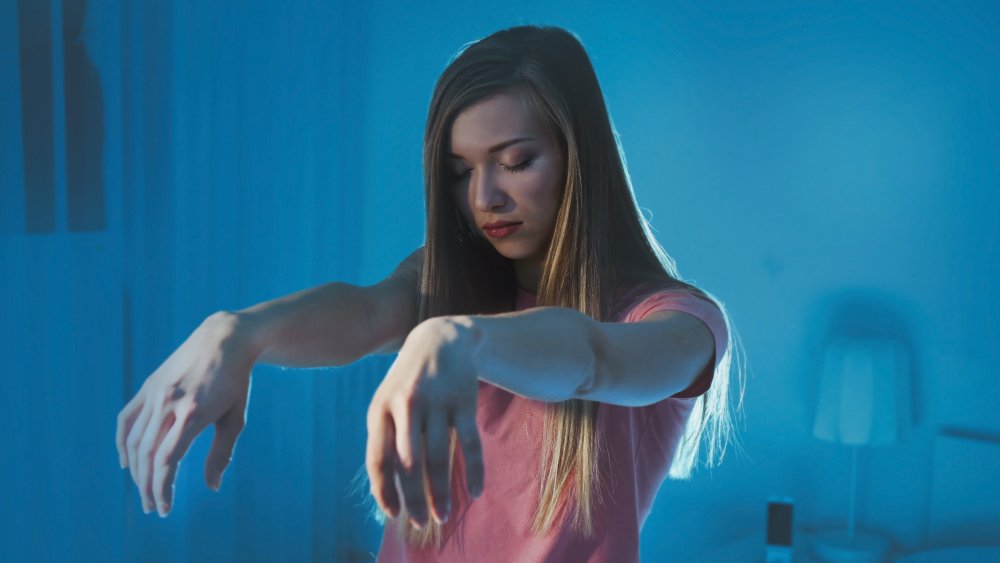Have You Ever Wondered Why People Sleepwalk? Here's The Reason
Sleepwalking is one of those things that you may find hard to believe exists unless it actually happens to you. However, the sleep disorder is more common than you think with the Sleep Foundation estimating that sleepwalking affects up to 15 percent of the population.
Medically referred to as somnambulism, Sleep Specialist at the Princess Alexander Hospital Sleep Disorders Centre in Australia, Dr. Claire Ellender, categorizes sleepwalking as a type of parasomnia — a group of sleep disorders that make you do things you shouldn't be doing while asleep like sleepwalking, sleep talking and bedwetting (via Queensland Health).
But why does parasomnia happen? "It is thought that parasomnias are due to an incomplete dissociation of sleep and wakefulness, meaning the brain is halfway between being awake and being asleep at night," Dr. Ellender explained. But this doesn't mean those who sleepwalk aren't in a deep sleep. More often that not, sleepwalkers rarely remember leaving the bed.
Sleepwalking is more common in children
Sleepwalking is more common in children and is often believed to be genetic. "Sleepwalking happens more often in children than in adults, and the predisposing factor there might be the fact that kids have a lot more of slow-wave sleep, a deep non-REM sleep where sleepwalking often starts," Dr. Vishesh Kapur, director of the University of Washington Sleep Disorders Center, explained to Live Science. Many children who experience sleepwalking when they are young are therefore likely to grow out of it.
For those who suffer from sleepwalking as an adult, there are certain lifestyle factors that have the potential to cause it, or increase the chances of it occurring. "In general, avoiding triggers for sleepwalking such as alcohol, caffeine and stimulants before bed are helpful to reduce the frequency of sleepwalking," said Dr. Ellender. Sleep deprivation and certain conditions and medications can also cause adults to sleepwalk.

